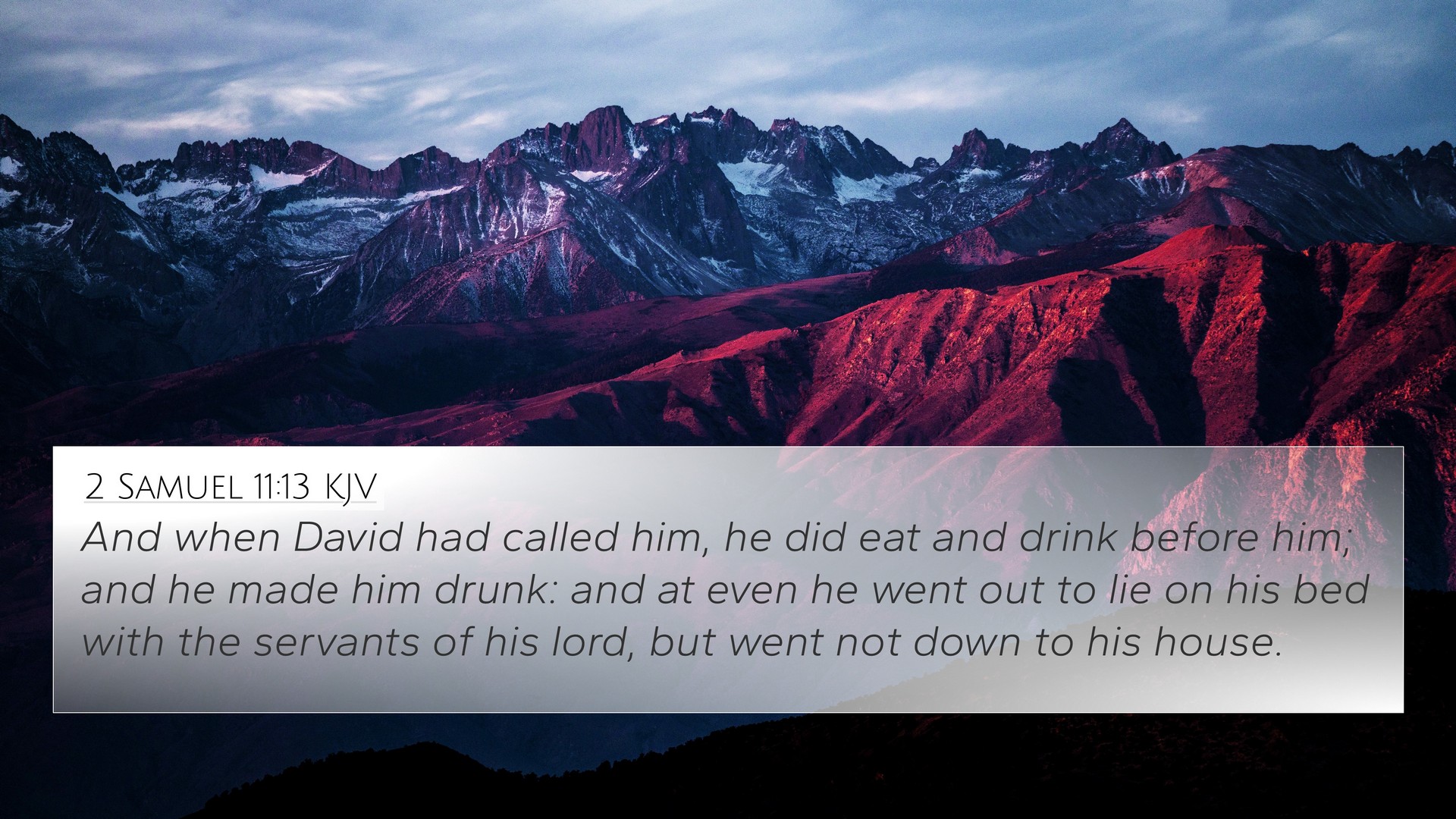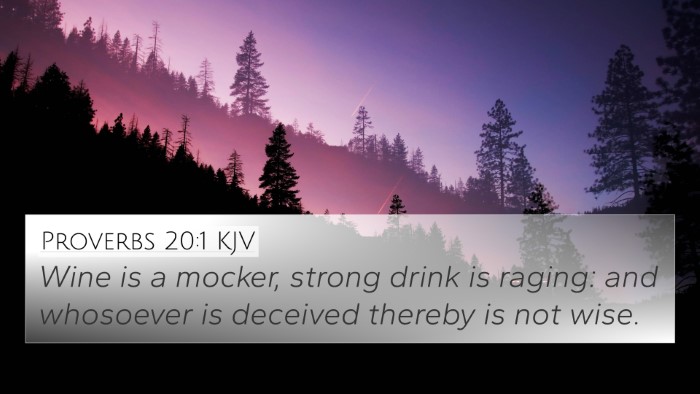Understanding 2 Samuel 11:13: A Comprehensive Analysis
2 Samuel 11:13 presents a pivotal moment in King David's story. The verse reads: "And when David had called him, he did eat and drink before him; and he made him drunk: and at evening he went out to lie on his bed with the servants of his lord, but went not down to his house." This verse illustrates David's manipulation of Uriah the Hittite, showcasing the moral decline that results from sin. Below, insights from various public domain commentaries will help illuminate its meaning and provide connections to other biblical passages.
Verse Context and Background
To grasp the full weight of 2 Samuel 11:13, we must explore its context. This verse is situated within the narrative of David's adultery with Bathsheba and the subsequent orchestration of Uriah's death. David's initial failure to acknowledge his sin leads him to deeper deceit, illustrating a common biblical theme where the consequences of sin spiral into further wrongdoing.
Commentary Insights
-
Matthew Henry's Commentary:
Henry emphasizes David's moral decline, noting that the king went to great lengths to conceal his sins instead of repenting. The act of getting Uriah drunk was a desperate attempt to manipulate him into returning to Bathsheba, showing a tragic progression of disobedience.
-
Albert Barnes' Notes:
Barnes indicates that this verse highlights David's intent to cover his actions through deceit. By making Uriah intoxicated, he hoped to create a façade of normalcy, thus further entrenching his guilt. Barnes draws parallels between David's actions and the inherent dangers of alcohol when misused for self-serving intentions.
-
Adam Clarke's Commentary:
Clarke focuses on the psychological implications of David's actions. He argues that David's moral fabric has unraveled, leading him to act against Uriah's honor for personal gain. Clarke also points out how this moment serves as a catalyst for eventual consequences, echoing the biblical principle that ‘what a man sows, so shall he reap’ (Galatians 6:7).
Thematic Connections
2 Samuel 11:13 has various thematic connections with other Scripture passages, which can deepen understanding through Bible verse cross-references.
- Exodus 20:14: "You shall not commit adultery" reinforces the gravity of David's sin.
- Psalm 51:1-2: In this penitential psalm, David's cry for mercy highlights his awareness of sin following the events of this chapter.
- Galatians 6:7-8: "For whatever one sows, that will he also reap," links to the inevitable consequences of David's actions.
- Proverbs 14:12: "There is a way that seems right to a man, but its end is the way to death," sheds light on David's misguided reasoning.
- Matthew 5:28: Jesus’ teachings on adultery extend the understanding of sinful intent beyond mere actions.
- 2 Samuel 12:9: The Lord's rebuke through the prophet Nathan following this incident marks the beginning of David’s consequences.
- Romans 1:21-22: Explores the theme of suppression of truth, relatable to David's denial of sin.
Lessons and Reflections
There are profound lessons within this narrative:
- Consequences of Sin: The immediate need to conceal sin often leads to further moral deterioration.
- Importance of Accountability: Actively seeking to manipulate others only distorts relationships and leads to greater estrangement from God.
- Call to Repentance: David's story urges believers to seek genuine repentance rather than temporary solutions.
Cross-Referencing Biblical Texts
To further explore the connections between Bible verses, one can utilize tools such as a Bible concordance or a Bible cross-reference guide. Engaging in cross-referencing Bible study helps unveil the intricate web of scripture.
Applications in Study
When studying passages like 2 Samuel 11:13, consider these cross-referencing Bible study methods:
- Identify key themes present in the verse and relate them to surrounding passages.
- Utilize a Bible cross-reference system to find connections between Old Testament narratives and New Testament teachings.
- Develop comprehensive Bible cross-reference materials focusing on the nature of sin and redemption.
Conclusion
The story encapsulated in 2 Samuel 11:13 serves as a timeless reflection on human frailty and the depths of deceit that sin can lead one to. By analysing this verse alongside related texts, we gain a more holistic understanding of its implications, both historically and personally. As you delve into these scriptures, remember that the journey of faith is enhanced through scriptural cross-referencing, enhancing our grasp of biblical truths and their application in our lives.






